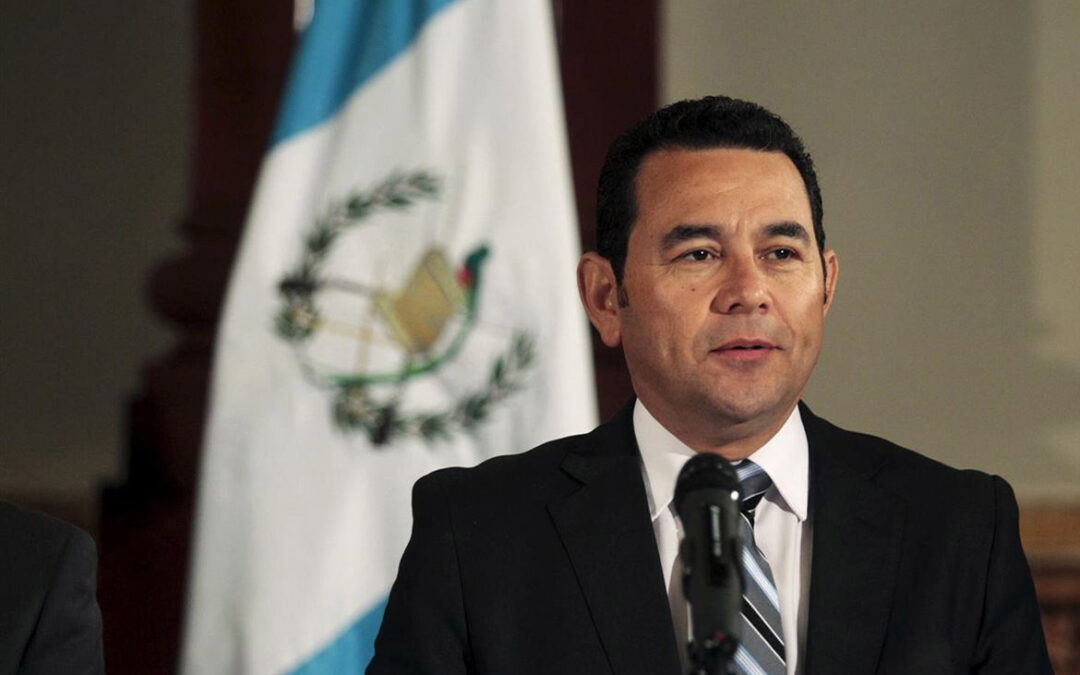
Sep 25, 2017 | News
Guatemala’s Congress should immediately remove obstacles to investigation and accountability of President Jimmy Morales (photo) and other public officials for alleged violations of campaign finance rules and corruption, the ICJ said today.
The ICJ also called on President Morales to cease efforts to impede the effective functioning of the United Nations mandated International Commission against Impunity in Guatemala (CICIG).
“Guatemala’s president and some members of Congress are obstructing justice by abusing their authority to avoid investigations for corruption and block the important work carried out by the Attorney General, with CICIG’s assistance,” said Sam Zarifi, ICJ’s Secretary General, just returned from a visit to the country.
“Guatemala, with CICIG’s assistance, has witnessed important progress in the fight against corruption and impunity in recent years, and Congress should be making sure that this trend continues,” he added.
The Congress voted on September 21 to reject the request by Attorney General Thelma Aldana and Ivan Velasquez, Commissioner of CICIG, to strip President Morales of Constitutional immunity he enjoys as president, in connection to allegations that his political party failed to report more than $800,000 in campaign financing.
But the Congressional vote fell short of the threshold of 105 votes needed to reach the necessary two-thirds of Congress needed to reach a final decision and thus can be reconsidered.
On September 13, Congress voted to revise the country’s criminal code by removing Secretary Generals of political parties from accountability for violations of electoral laws (instead limiting accountability to accountants) and to commute the sentences of those already convicted of a number of serious crimes, including corruption, trafficking of persons, and sexual abuse.
The legislators rescinded the vote after two days of nationwide public demonstrations and a decision of the country’s Constitutional Court to suspend the law’s application.
The Guatemalan Constitutional Court suspended the revisions in response to a writ of amparo and characterized Congress’ revisions to the criminal code as “a threat that, in case of being implemented, could cause irreparable damage to the judicial system”.
“The Constitutional Court’s speedy action avoided a massive blow to the fight for accountability in Guatemala, because if the law had gone into effect for even one hour, it would have provided a legal basis for politicians convicted on corruption charges to demand release or commutation of their sentences,” Zarifi said.
Congress’s actions followed an attempt by President Morales to expel CICIG’s Commissioner Velasquez, as persona non grata and to revise CICIG’s mandate, in an apparent bid to block investigations into his alleged wrongdoing.
“Since CICIG was formed in December 2006 at the request of the Guatemalan government, it has worked closely with the country’s Attorney General to improve accountability, and its impact has been undeniably positive,” Zarifi said.
“This is a model of international support for national accountability mechanisms that should be studied and emulated around the world; its continued operation is therefore of interest not just to Guatemala and the region but to global efforts to combat impunity,” he added.
The ICJ called on the Guatemalan government to comply with its international legal obligations as a State party to the 2004 United Nations Convention Against Corruption and the 1996 Inter-American Convention Against Corruption.
Background
Article 30(2) of the UN Convention Against Corruption calls on State Party to strike “an appropriate balance between any immunities or jurisdictional privileges accorded to its public officials for the performance of their functions and the possibility, when necessary, of effectively investigating, prosecuting and adjudicating offences established in accordance with this Convention.”
Article 30(3) demands States “to ensure that any discretionary legal powers under its domestic law relating to the prosecution of persons for offences established in accordance with this Convention are exercised to maximize the effectiveness of law enforcement measures in respect of those offences and with due regard to the need to deter the commission of such offences.”
Contact:
Sam Zarifi, ICJ Secretary General, t: +41 79 726 44 15 ; e: sam.zarifi@icj.org
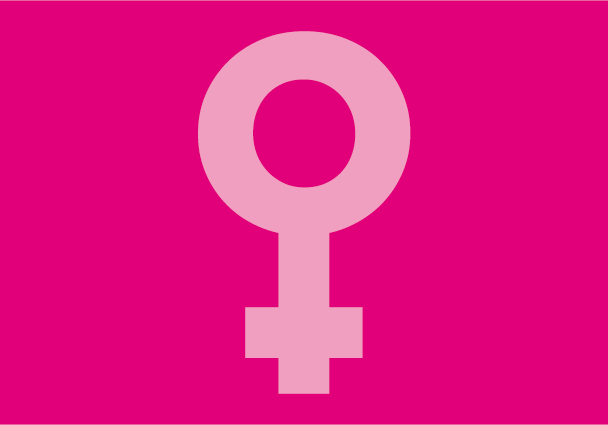
Sep 25, 2017 | Advocacy, Non-legal submissions
The ICJ today joined a group of 285 organisations from around the world calling on governments across the world to respect, protect and fulfill the right to access safe and legal abortion services and post-abortion care.
The statement, which was delivered by the NGO Action Canada for Population and Development, during a general debate at the UN Human Rights Council in Geneva, read as follows:
Through the Vienna Declaration and Programme of Action, States explicitly agreed to prioritize the human rights of women, including the eradication of gender-based discrimination and violence. However, many States have not yet made the important decision that women’s human rights deserve to be upheld and their lives are worth saving. The continued criminalization of abortion and restrictions on access to and provision of abortion and post-abortion care in many jurisdictions is stark evidence of this.
Around 22 million unsafe abortions are estimated to take place around the world annually, leading to 7 million health complications and 47,000 deaths. In addition, there are major social and financial costs to women and girls, families, communities, health systems and economies. The criminalization of abortion and failure to ensure access to quality abortion services is a violation of the rights to non-discrimination, to privacy, and to make decisions about one’s own body, and can constitute torture or ill-treatment, as repeatedly highlighted by UN bodies and experts. Prohibiting abortion pushes it underground and gives rise to unsafe abortions, violating the rights to life, health and bodily autonomy. Moreover, the poor and those already facing multiple and intersecting forms of discrimination are disproportionately affected, making the global community’s pledge to “leave no one behind” ring hollow.
These human rights violations must stop now. On September 28, the Global Day of Action for Access to Safe and Legal Abortion, we urge the Human Rights Council to address the human rights violations arising from criminalization of abortion and the denial of access to safe and legal abortion services through its resolutions, decisions, dialogues, debates, and the UPR. We demand in a collective voice that governments across the world respect, protect and fulfill the right to access safe and legal abortion services and post-abortion care.
The full statement, with the list of signatories, may be downloaded in PDF format here: HRC36-JointOralStatement-item8-GD-Abortion-2017
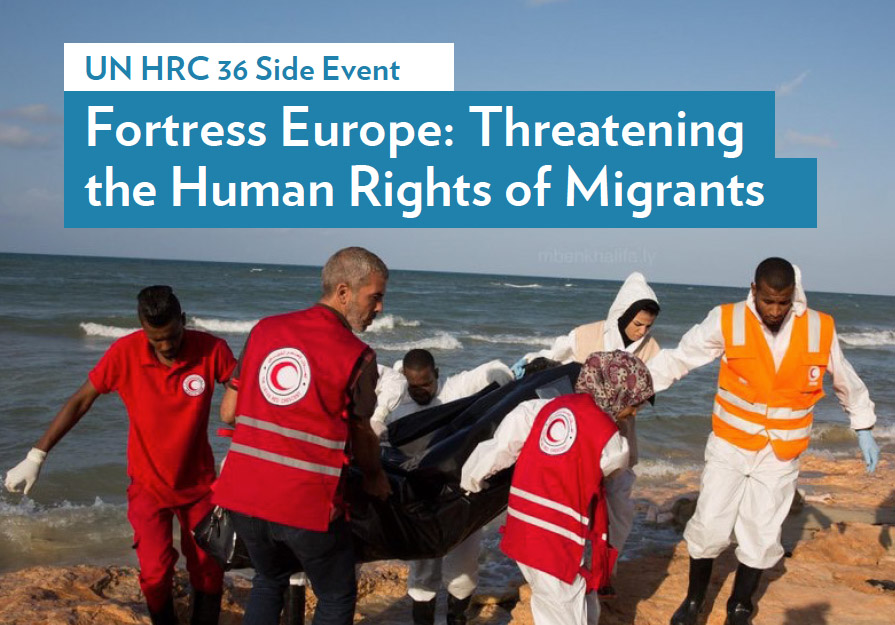
Sep 25, 2017 | Events, News
This side event at UN HRC 36 will take place on 26 September 2017, 11.00-12:30, Room XV, Palais des Nations, Geneva.
The side event, hosted by Lawyers for Justice in Libya and the Cairo Institute for Human Rights Studies, will discuss the role of European Union (EU) Member States in the migration crisis and how their policy on migration is threatening the human rights of migrants. The panel will discuss and make recommendations to EU Member States, Libya and the Human Rights Council to ensure accountability for human rights violations being committed against thousands of migrants.
Speakers:
Conor Kenny Doctors Without Borders
Elham Saudi Lawyers for Justice in Libya
Matteo De Bellis Amnesty International
Tareg Ben Ramadan Coalition of Libyan Human Rights Organisations
Chair:
Massimo Frigo International Commission of Jurists
Europe-Flyer side event-News-Event-2017-ENG (Flyer in PDF)
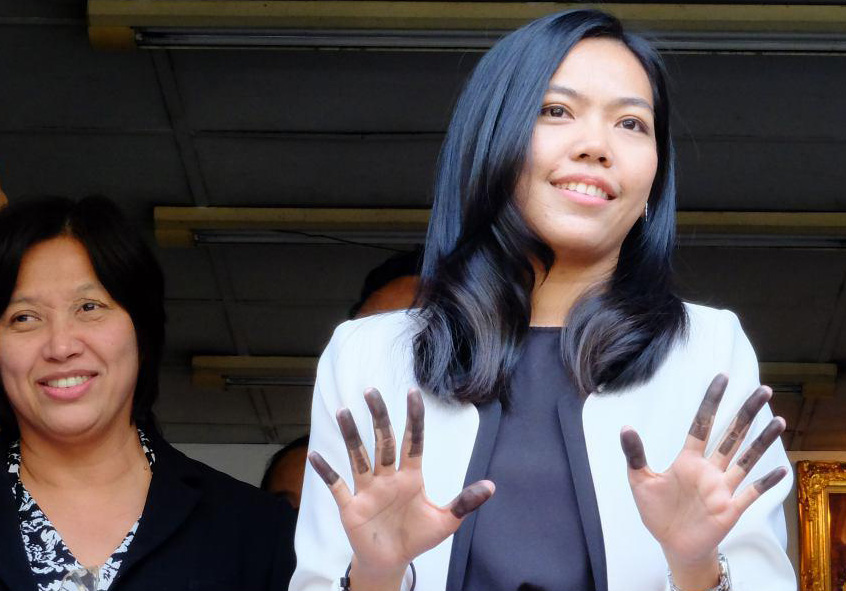
Sep 22, 2017 | Advocacy, Non-legal submissions
Addressing the UN Human Rights Council, the ICJ today urged Thailand to end criminal proceedings against lawyer Sirikan “June” Charoensiri, that are based on her professional activities as a human rights defender and lawyer.
The statement came during general debate at the Human Rights Council on, among other things, the report compiling cases of individual complaints that have been raised by the Special Procedures (independent experts) appointed by the Council. The statement read as follows:
“Among the many cases covered by the Communications Report of Special Procedures (A/HRC/36/25) is that of Thailand lawyer and human rights defender, Sirikan “June” Charoensiri. She was charged with sedition and other offences for actions taken, in her professional role, to protect human rights. With other lawyers, she had observed and provided legal assistance to participants in a peaceful protest.
In April, four Special Rapporteurs sent a joint communication (AL THA 2/2017) to Thailand about her case, and the related issues of restrictions on fundamental freedoms put in place following the military coup of May 2014, and prosecution of civilians in military courts.
Thailand’s response to the communication (No.52101/483) attempts to justify the charges against her by, among other things, appearing to associate her with the persons to which she and her colleagues were providing legal aid.
Principle 18 of the UN Basic Principles on the Role of Lawyers states that, “lawyers shall not be identified with their clients or their clients’ causes as a result of discharging their functions.”
The International Commission of Jurists considers that the case against Ms Charoensiri is incompatible with these and other international human rights standards. The ICJ calls upon Thailand ensure the legal proceedings against Ms Charoensiri are ended, and that measures are taken to end and prevent similar cases against other human rights defenders in the country.”
Exercising its right of reply to the statement, the delegation of Thailand, while appearing to accept that Ms Charoensiri is a human rights defender and lawyer, asserted that she had not been charged in her capacity as a lawyer or human rights defender, but due to the possibility that she was a principal or co-perpetrator of an offence, which the delegation said was based on unspecified information from the Royal Thai Police. The delegation affirmed that the Thai government attaches high priority to the protection of human rights defenders, and referred to several initiatives the delegation said were currently being prepared in this regard.
More detail from ICJ about the case is available by clicking here.
Details of the Special Procedures’ action on the case is available in the database of communications, by clicking here.
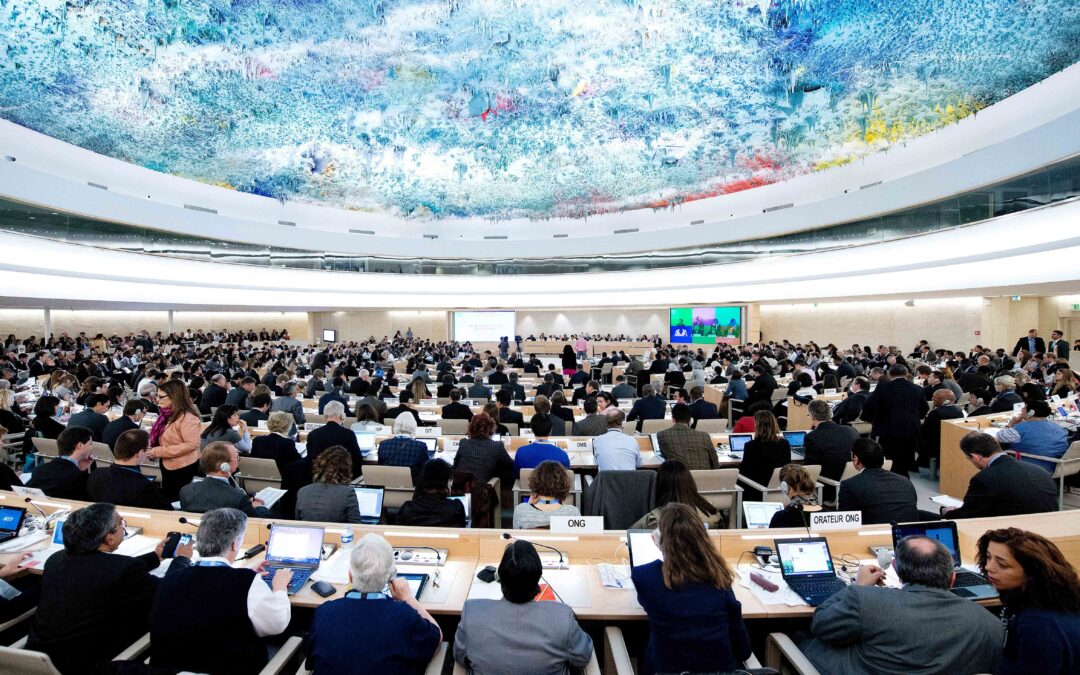
Sep 22, 2017 | Advocacy, Non-legal submissions
The ICJ spoke today at the UN, on behalf of its Dutch national section NJCM and the civic rights organization Kompass, addressing the need for the Netherlands to adopt concrete measures to implement commitments it has accepted under the Universal Periodic Review process.
The statement, delivered in the discussion by the UN Human Rights Council of the outcome of the third cycle UPR of the Netherlands, read as follows:
The ICJ makes this statement with the support of our Dutch section NJCM (Nederlands Juristen Comité voor de Mensenrechten) and civic rights organization Kompass, who together coordinated the report ‘Bringing Human Rights Home’ on behalf of 23 Dutch organizations that contributed to the UPR of the Netherlands.
Some aspects of the Netherlands’ engagement with the UPR have been positive: the Foreign Ministry as well as UPR-info organized valuable interactions in Geneva for NGOs and delegates. Dutch politicians attended the UPR sessions, setting an important precedent. The Dutch Parliament discussed the UPR process for the first time ever.
Other aspects have been disappointing. The Dutch Foreign Minister has used the term “check-box diplomacy” in reference to States that formally engage with the UPR in Geneva but do not take the necessary steps to implement human rights at home. We fear that, ironically, the phrase could well be applied to the Netherlands itself, where the Government’s “National Action Plan” does not accord with relevant OHCHR guidance, and is commonly referred to by Dutch civil society as the “No Action Plan”. Indeed, Dutch civil society have yet to see any new action by the Government designed to implement the UPR recommendations.
We therefore encourage the future Minister of Interior to put an end to this passive attitude and start investing in the national coordination of the implementation of human rights, including in relation to accepted UPR recommendations, and to engage with the Dutch Parliament on priorities and meaningful actions for the New National Action Plan.
National Action Plans and UPR recommendations are a means to an end, not an end in themselves. Human Rights and the UPR are about taking action and reforming laws, policies and practices at home, not paper pushing and bureaucracy. With the Netherlands’ accepted UPR recommendations now in hand, Dutch civil society’s message is (to paraphrase a saying from Rotterdam): “enough talk, let’s get to work!”
Responding to these and similar remarks from other stakeholders, the delegation of the Netherlands stated that the government would convene, in November, a multi-stakeholder conference on UPR follow up, consisting of plenary and workshop sessions to discuss how to follow up the process at the national level.
The delegation also noted in its final remarks that the Netherlands views this third cycle of the UPR as being about implementation, specifically referencing the ICJ/NJCM/Kompass statement, saying, “in other words, as one of the NGO speakers put it, let’s get to work!”
The statement may be downloaded in PDF format here: HRC36-OralStatement-UPR-Netherlands-2017









